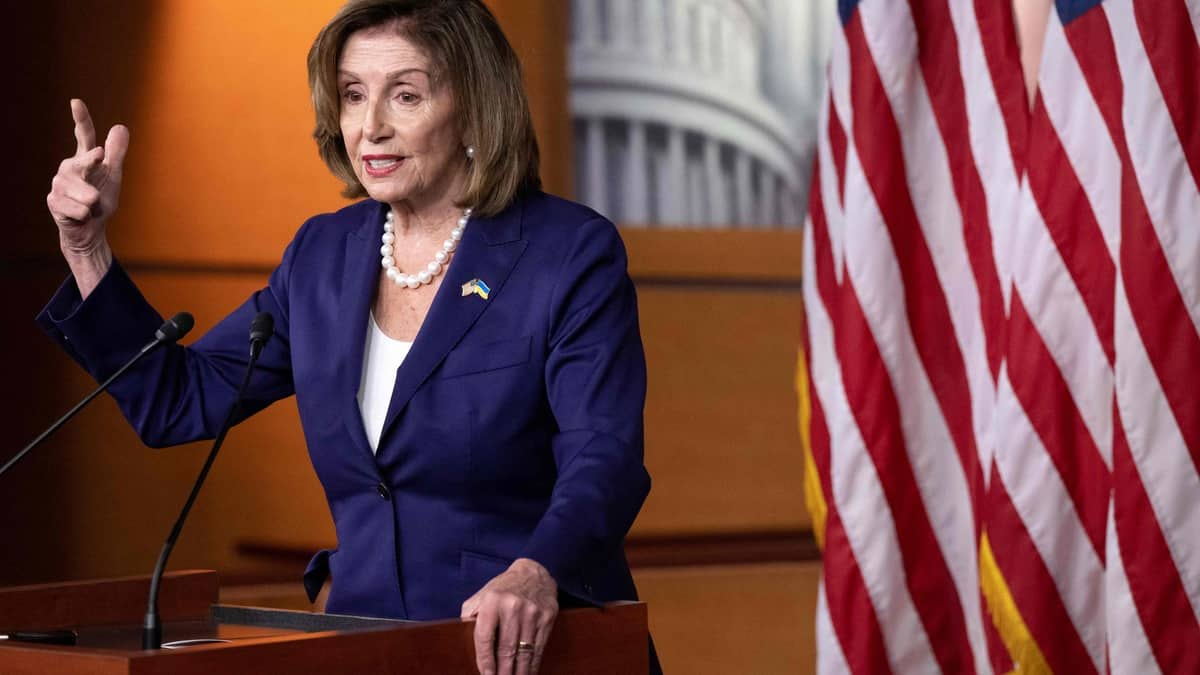
US House of Representatives Speaker Nancy Pelosi kicked off her Asian tour on Monday with her first stop in Singapore, maintaining the ambiguity surrounding the stop in Taiwan, which could exacerbate already strained relations between Beijing and Washington.
• Read also: Nancy Pelosi confirms that she is on her way to Asia, without mentioning Taiwan
• Read also: Blinken hopes Beijing and Washington will manage their differences ‘wisely’
• Read also: Xi warns Biden not to “play with fire” in Taiwan
In Singapore, Prime Minister Lee Hsien Loong called her to work for “stable” relations with Beijing. A meeting with the head of the city state is also scheduled.
Pelosi announced Sunday that she is leading a “congressional delegation to the Indo-Pacific to reaffirm America’s unwavering commitment to its allies and friends in the region.”
“In Singapore, Malaysia, South Korea and Japan, we will hold high-level meetings to discuss how we can advance our common values and interests,” she added, without mentioning Taiwan in the post.
For weeks, tensions between the United States and China have been rising over reports that Pelosi may be traveling to the island of Taiwan, which China considers part of its territory.
If the Speaker of the House of Representatives […] When traveling to Taiwan, China will definitely take resolute and strong countermeasures to protect its sovereignty and territorial integrity,” Chinese diplomatic spokesperson Zhao Lijian warned again on Monday.
He warned that the Chinese military “will not stand idly by”.
Delegations of US officials travel to Taiwan frequently to express their support. But the visit of Ms. Pelosi, one of the state’s leading figures and a heavyweight in American political life, would be unprecedented since that of her predecessor Newt Gingrich in 1997.
The United States in relation to Taiwan practices the so-called “strategic ambiguity” diplomacy, which consists in recognizing only one Chinese government, that of Beijing, while continuing to provide decisive support to Taipei, but refraining from saying whether it will do so or not. Defend the island militarily in the event of an invasion.
Ms Pelosi’s visit to Taiwan, a pivotal figure in President Joe Biden’s Democratic majority, will uniquely complicate the task of US diplomacy, which is trying not to poison relations with China.
It also comes at a time of rising military tension in the region.
Last week, during a phone interview with Joe Biden, Chinese President Xi Jinping called on his counterpart not to “play with fire.”
Four thousand US and Indonesian soldiers on Monday began large military exercises, but Washington stressed that these exercises do not target any country.
The Taiwanese army, for its part, carried out its most important annual military exercises last week, which included simulations of intercepting Chinese attacks.
Meanwhile, the US aircraft carrier USS Ronald Reagan and its convoy have left Singapore for the South China Sea on a scheduled mission, according to the US Navy.
In response, on Saturday, China organized “live fire” military exercises in the Taiwan Strait – near the Chinese coast.
Washington has sought to play down a possible visit by Pelosi and has called on Chinese leaders to remain calm.
“We have many differences when it comes to Taiwan, but over the past 40 years we have been able to deal with those differences and we have done so in a way that has maintained peace and stability,” the foreign minister said on Friday.
In Taiwan, opinions about a possible visit by Pelosi are divided, but ruling and opposition party figures have said the island should not succumb to Chinese pressure.
“If Pelosi cancels or postpones her trip, it will be a victory for the Chinese government and for Xi, as it will be shown that the pressure he exerted has had some desired effects,” Hong Chenfu told AFP. Kong University in Taiwan.






